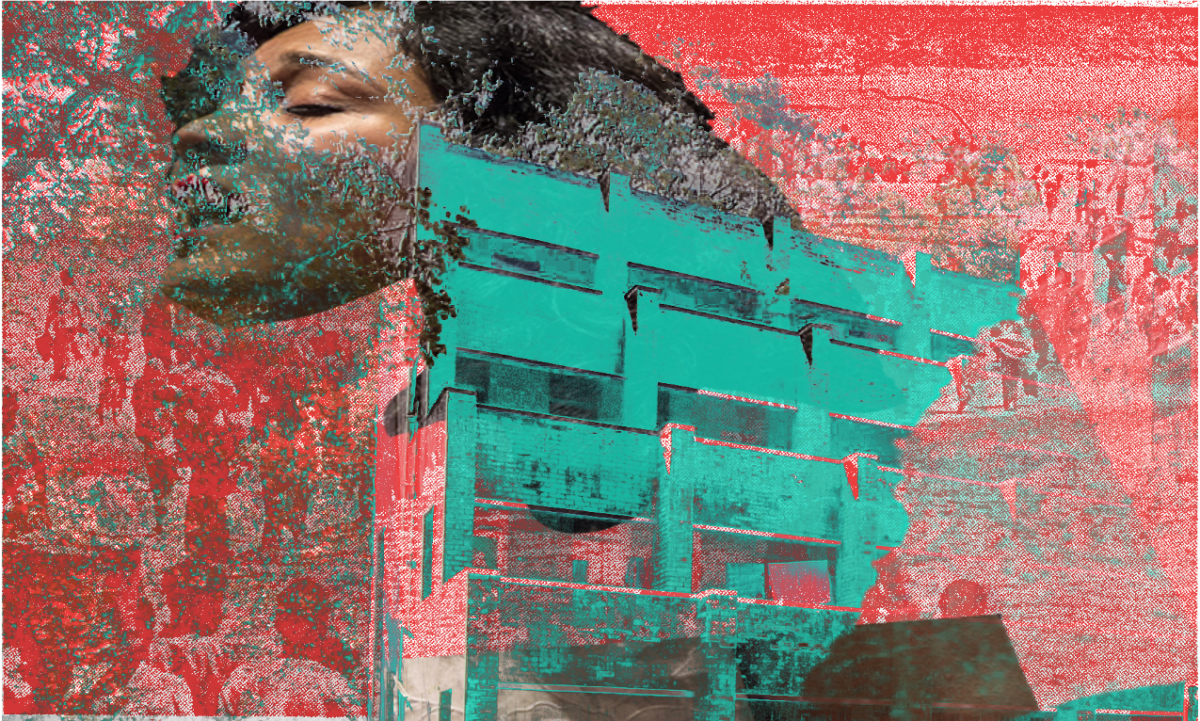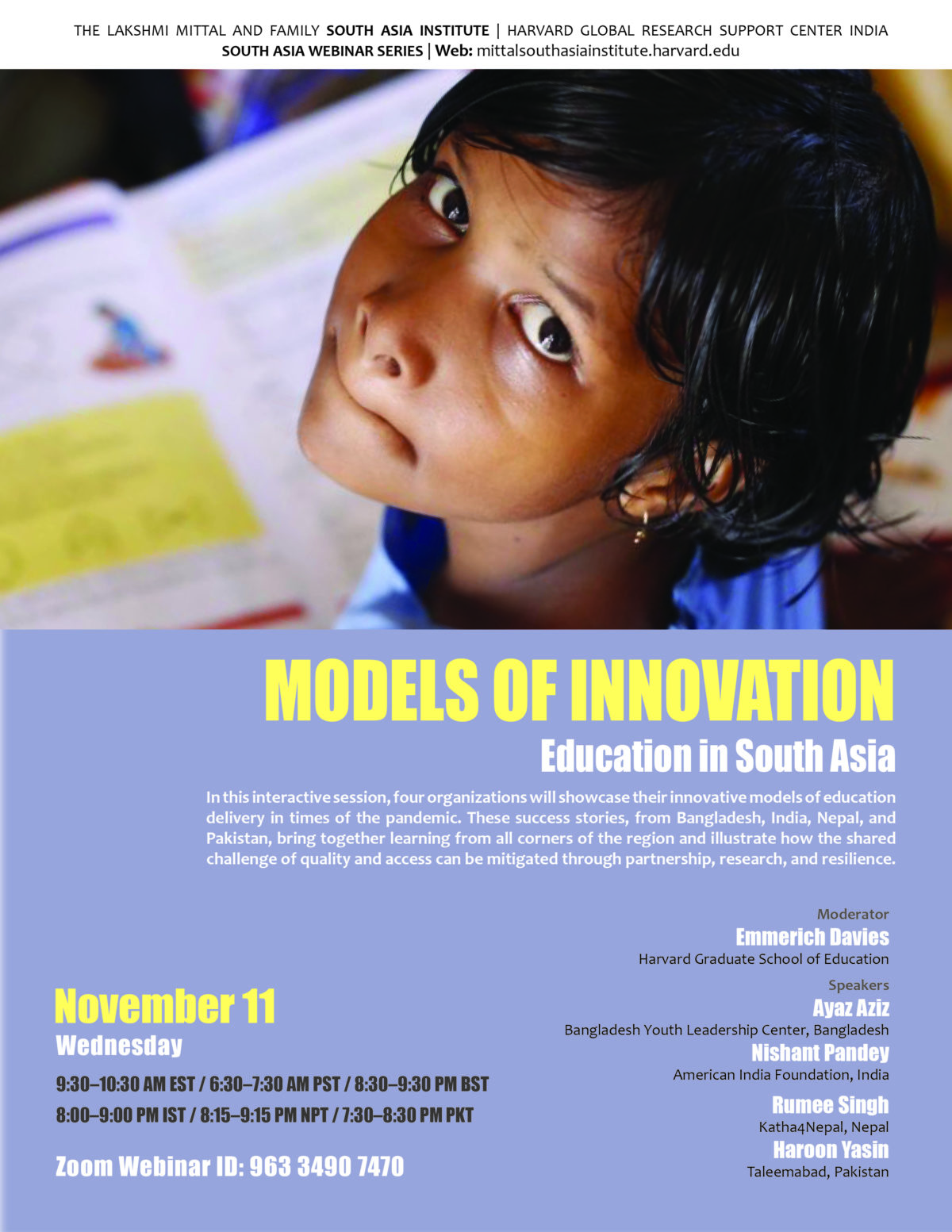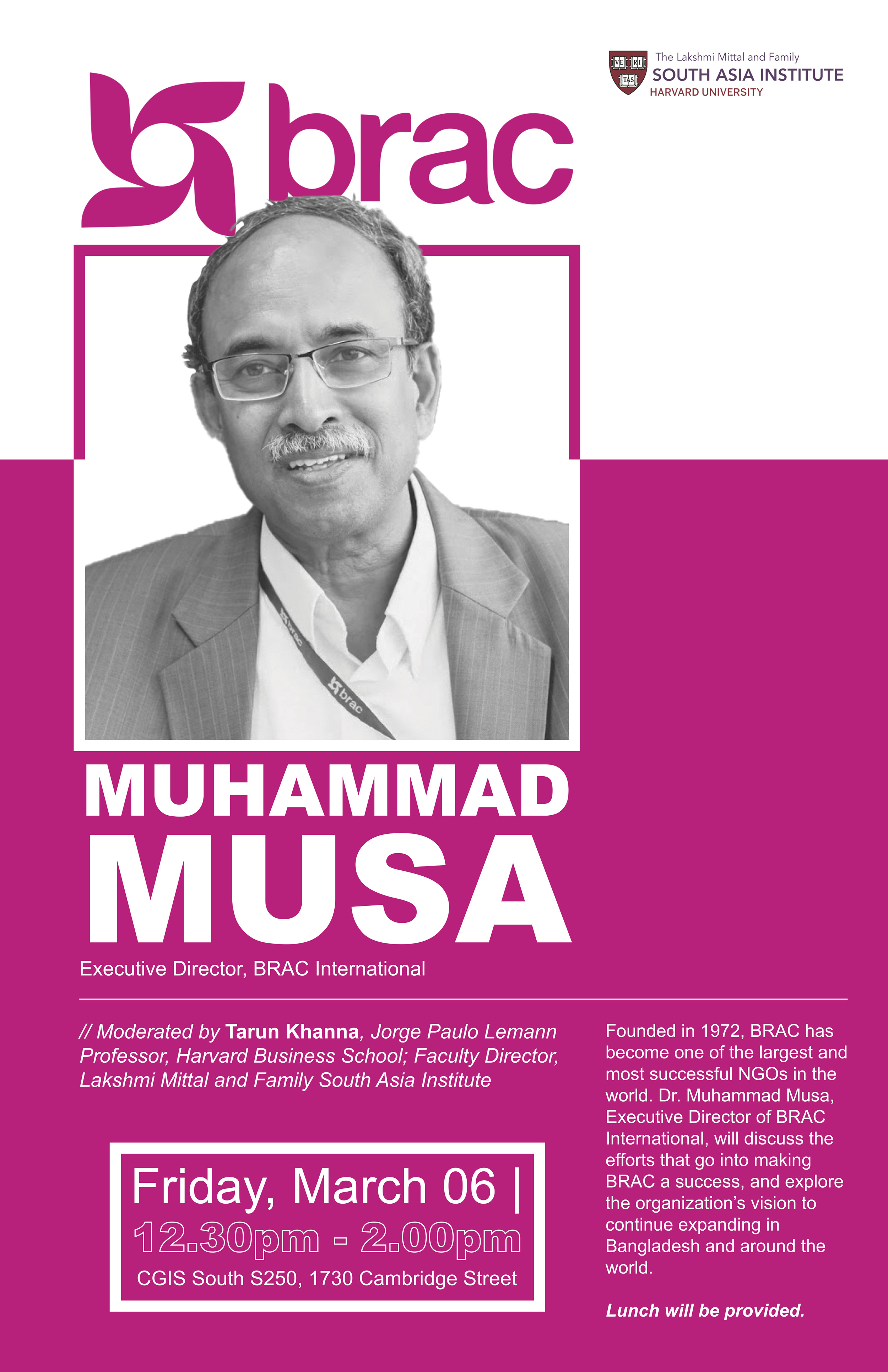WHEN
Fri, Jul 9, 2021 from 10:00am — 11:00am, ET
Lancet Citizen's Commission Webinar Series, Panel, Seminars, Webinar, Workshops and Round Tables, Afghanistan, Bangladesh, Bhutan, India, Myanmar, Nepal, Pakistan, Sri Lanka
Part 3 – Tests and Vaccines 7:30-8:30 pm IST/ 10:00-11:00 am ET Zoom link for the talk Stream the talk on YouTube The science and practice of Covid-19 clinical care continues to evolve as new discoveries change our treatment options, management of complications and influence vaccination strategies. The Mittal Institute, with the support of […]
More InfoWHEN
Tue, Jul 6, 2021 from 09:30am — 10:30am, ET
Lancet Citizen's Commission Webinar Series, Lecture, Seminars, Webinar, Workshops and Round Tables, Afghanistan, Bangladesh, Bhutan, India, Myanmar, Nepal, Pakistan, Sri Lanka
Part 2 – High Value Therapeutics 7:00-8:00 pm IST/ 9:30-10:30 am ET Zoom link for the talk Stream the talk on YouTube The science and practice of Covid-19 clinical care continues to evolve as new discoveries change our treatment options, management of complications and influence vaccination strategies. The Mittal Institute, with the support of […]
More InfoWHEN
Thu, Jun 24, 2021 from 10:00am — 11:00am, ET
Lancet Citizen's Commission Webinar Series, Lecture, Seminars, Webinar, Workshops and Round Tables, Afghanistan, Bangladesh, Bhutan, India, Myanmar, Nepal, Pakistan, Sri Lanka
Part 1 – Oxygenation and Ventilation: At home and in the hospital 7:30-8:30 pm IST/ 10:00-11:00 am ET Zoom link for the talk Stream the talk on YouTube The science and practice of Covid-19 clinical care continues to evolve as new discoveries change our treatment options, management of complications and influence vaccination strategies. The […]
More InfoWHEN
Thu, Apr 1, 2021 from 04:00pm — 05:30pm, ET
Panel, Talk, Special Event, Afghanistan, Bangladesh, Bhutan, India, Myanmar, Nepal, Pakistan, Sri Lanka
Register here to join the webinar. PANELISTS: Han Lu, Senior Policy Analyst, National Employment Law Project christina ong, PhD Student, Department of Sociology, University of Pittsburgh Elena Shih, Manning Assistant Professor of American Studies and Ethnic Studies, Brown University MODERATOR: Vivian Shaw, College Fellow, Department of Sociology, Harvard University; Co-Principal Investigator, AAPI COVID-19 Project […]
More InfoWHEN
Wed, Mar 3, 2021 at 07:00am, ET — Thu, Mar 4, 2021 at 11:00am, ET
Wednesday, March 3, 2021: 7:00 AM EST – 11:00 AM EST // 6:00 PM BST – 10:00 PM BST Thursday, March 4, 2021: 7:00 AM EST – 11:00 AM EST // 6:00 PM BST – 10:00 PM BST Register here to receive the Zoom link to both days of the conference. Livestream Day 1 (Wednesday, […]
More InfoWHEN
Wed, Nov 11, 2020 from 09:30am — 10:30am, ET
Link to join Webinar: https://harvard.zoom.us/j/96334907470 Register to receive updates on this webinar series: https://bit.ly/34FdVUZ In this interactive session, four organizations will showcase their innovative models of education delivery in times of the pandemic. These success stories, from Bangladesh, India, Nepal, and Pakistan, bring together learning from all corners of the region and illustrate how the […]
More InfoWHEN
Fri, Jun 12, 2020 from 09:00am — 10:30am, ET
NO REGISTRATION REQUIRED 9:00–10:30 AM EST // 6:00–7:30 PM PKT // 6:30–8:00 PM IST // 7:00–8:30 PM BST Virtual via Zoom: https://harvard.zoom.us/j/99118872916 Stream via YouTube Live: https://youtu.be/JgegRQEm1UY Moderators Dr. Elora Chowdhury, Professor, Women’s, Gender, and Sexuality Studies, University of Massachusetts, Boston Dr. Durba Mitra, Assistant Professor, Studies of Women, Gender, and Sexuality, Harvard University Speakers […]
More InfoWHEN
Fri, Mar 6, 2020 from 12:30pm — 02:00pm, ET
Founded in 1972, BRAC has become one of the largest and most successful NGOs in the world. Dr. Muhammad Musa, Executive Director of BRAC International, will discuss the efforts that go into making BRAC a success, and explore the organization’s vision to continue expanding in Bangladesh and around the world. Lunch will be provided. Speaker […]
More InfoWHEN
Sat, May 12, 2018 from 08:00am — 09:00pm, ET
ABOUT THE CONFERENCE: The Economist reported last September that it is “a good moment to celebrate Bangladesh’s economic progress. Its annual growth has averaged more than 6% over the past ten years and has run above 7% over the past two.” More than celebrating, Bangladesh Rising conference will discuss how Bangladesh can maintain its momentum, and […]
More InfoWHEN
Wed, Apr 4, 2018 at 04:00pm, ET — Mon, Apr 9, 2018, ET
The SAI Spring Art Exhibition features 2D and 3D art and artifacts inspired by Harvard students who traveled to South Asia sponsored by Harvard SAI travel grants. Some highlights include children’s picture books written in the Indigenous languages of Chittagong Hill Tracts in Bangladesh, photographs of fallen mosques in Myanmar and candid photos of workers […]
More Info











